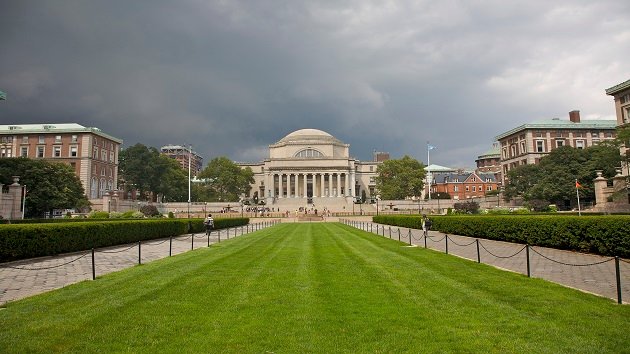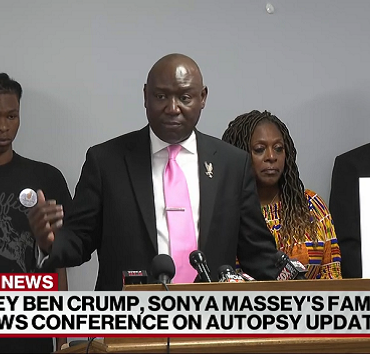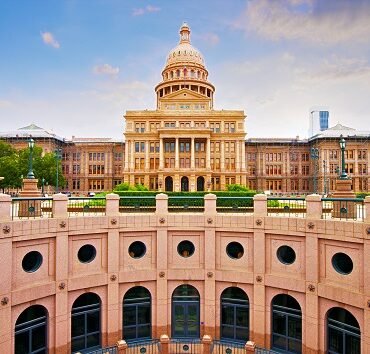-
 play_arrow
play_arrow
WMEX WMEX Boston
-
 play_arrow
play_arrow
Courage To Hope-Episode 82-Michael Courage To Hope-Episode 82-Michael
How some colleges have de-escalated campus protests and negotiated with students
todayMay 10, 2024

Getty Images – STOCK
(NEW YORK) — As anger over Israel’s military operations in Gaza mounted, students from Columbia University’s Apartheid Divest coalition assembled on the university’s South Lawn on April 17, demanding that school officials disclose its financial investments.
A day later, at least 108 students were suspended and removed after the school’s president, claiming outside agitators were posing a risk on campus, asked the New York Police Department to intervene. The police presence was “uncalled for,” Angelica Ang, a student journalist at Columbia University, told ABC News – though the president said she made the decision with the support of the university’s trustees.
There have been protests at least 39 campuses since April and nearly 2,600 students have been arrested, according to The Associated Press.
While some universities were able to de-escalate student protests quickly, others struggle to calm protests relating to the conflict in Gaza, as Israel tries to defeat Hamas terrorists.
Schools that negotiated with students versus calling in law enforcement have seen different results, University of Alabama at Birmingham criminal justice professor John Sloan III said.
University of California, Berkeley sociology professor Cihan Tugal said the heaviest protester participation has only happened in “cases where the administration cracks down violently.”
The University of Chicago and George Washington University protests escalated as police dismantled student encampments in May.
GWU had five days of demonstrations before the school president asked Washington’s Metropolitan Police Department for assistance; however, the request was rejected, according to The Washington Post. Officers used pepper spray against the protesters and 33 people were arrested during the confrontation, Mayor Muriel Bowser said.
Some schools, including Columbia and the University of Southern California, canceled their university-wide commencements. In April, USC canceled its commencement speeches, including the valedictorian’s, citing safety concerns.
Not all schools have experienced heated confrontations. Brown University allowed five students to present their divestment proposal to administrative leaders if they cleared encampments. Northwestern University said students could join the school’s investment committee if students removed tents. Moreover, Northwestern students were given permission by administrators to continue “peaceful demonstrations” and keep one tent on campus. Other schools that have de-escalated protests include Rutgers and Evergreen State College in Washington state.
One thread among schools that were able to de-escalate demonstrations: communication between the administration and students. “In any crisis, people want to be heard, if they aren’t things will escalate,” said Sandy Lish, an expert on crisis management who focuses on higher education.
Brown University had an initial encampment of 90 students. According to a statement by the school’s office of the president, “the demonstrations might make some feel uncomfortable on the College Green, or create inconvenience” but “university staff will work with the protesters to address these issues.”
At Columbia, the president said she reached out to police after seeing “too many examples of intimidating and harassing behavior,” including antisemitic language that she said was being used to intimidate and harass people.
“I do know that better adherence to our rules and effective enforcement mechanisms would obviate the need for relying on anyone else to keep our community safe,” Minouche Shafik said in a statement last month. “We should be able to do this ourselves.”
But some students said they felt disappointed at the lack of communication between the administration and the protesters. “Not once did the president come by,” Ang said.
“We are responding appropriately as we have long made clear we would,” a university spokesperson said after Columbia students occupied Hamilton Hall and the president asked the NYPD to come to campus for the second time.
At Harvard, the Palestine Solidarity Committee was suspended and student protesters were told they would be placed on “involuntary leave.”
The move prompted an emergency rally on campus for those who opposed the suspension of the group, which drew controversy earlier this year after releasing a statement immediately after the Oct. 7 Hamas attack saying it held “the Israeli regime entirely responsible for all unfolding violence.”
More than 300 Harvard professors signed a letter urging the administration to negotiate with students. “The administration has issued escalating threats of punitive disciplinary action, the severity of which the university has not seen in decades,” the professors wrote.
As colleges begin commencement and summer recess, the challenges universities face are far from over. Sloan said schools face incident reviews to analyze “the lines of communication, where they did well or poorly, and who was doing the talking.”
Copyright © 2024, ABC Audio. All rights reserved.
Similar posts
CONTACTS
- https://wmexboston.com
- 781-834-WMEX(9639)
- studio@wmexboston.com
- 130 Enterprise Dr, Marshfield, MA 02171
ABOUT
WMEX Boston can be heard at 1510 AM, and 101.1 FM. Playing the greatest hits from 50s, 60s, 70s, 80s, and more!
MENU
SPONSORS
Copyright 2024 WMEX Boston - Design by Pro Radio Solutions




